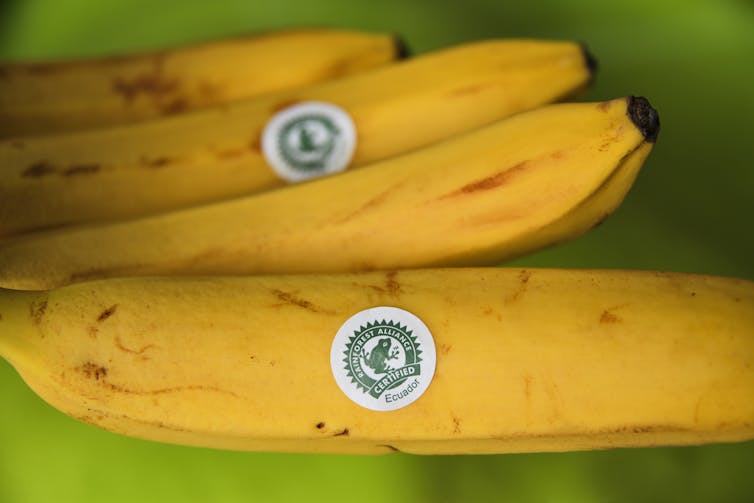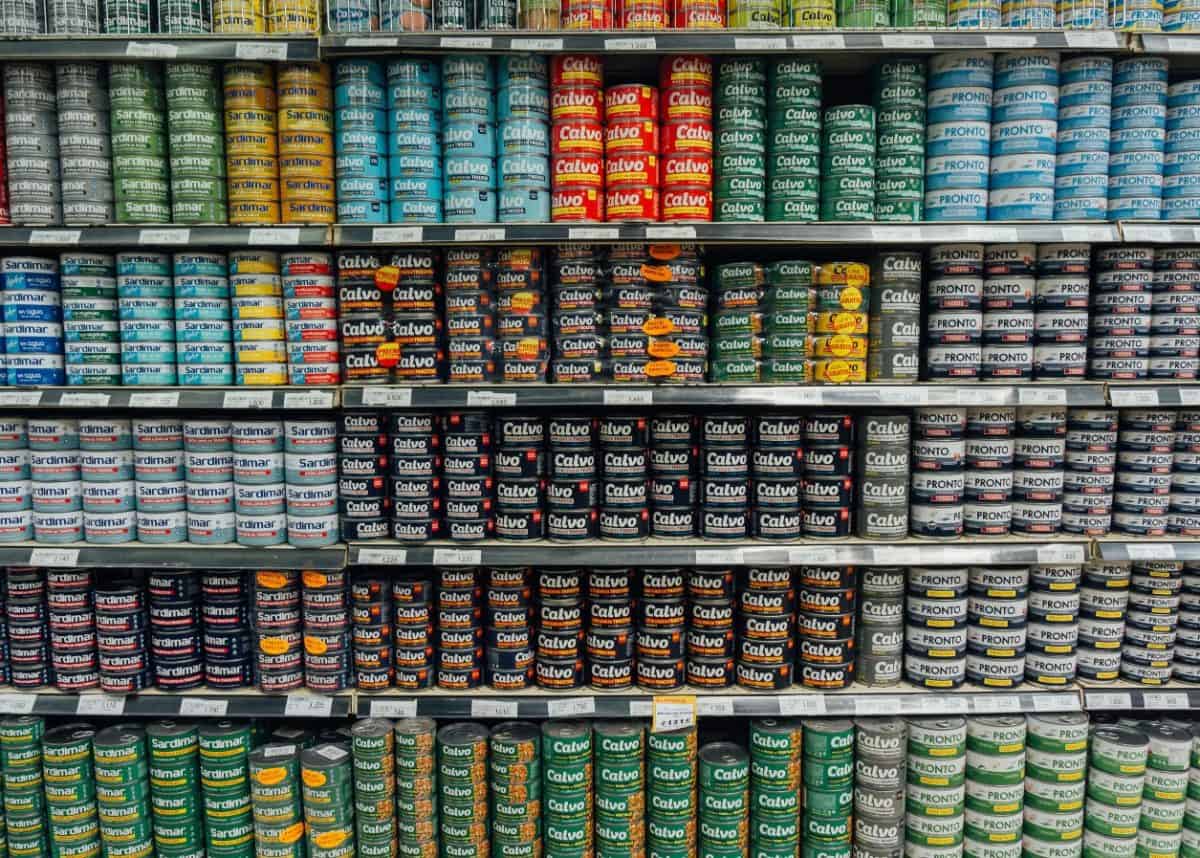Christina Potter, University of Oxford
What’s for dinner tonight? If it’s a choice between beef or tofu, it might help to know there’s a 50-fold difference in greenhouse gas emissions between these products and a 200-fold difference in how much land is used to create them, according to recent research. The choices people make in supermarket aisles can affect how sustainable food systems are, but how do you know which to choose when you’re confronted with multiple options of the same product?
Ecolabels were invented in the late 1970s to help consumers tell the difference between a product with a large ecological footprint – produced and distributed in a way that releases lots of greenhouse gases or consumes a lot of natural habitat – and a product with a smaller one. Globally, there are thought to be more than 120 different types of ecolabels in use on food and drink products. If you live in the UK, you might recognise the Marine Stewardship Council logo, the Carbon Reduction label, or the Rainforest Alliance Certified badge.

These ecolabels are certainly well intentioned, but how effective are they in encouraging consumers to make green choices? In a new systematic review, we found that people given the option of a food or drink product with an ecolabel and one without are more likely to choose the former.
How ecolabels stack up
Our team of researchers reviewed 56 different studies which had tested how different ecolabels affected the choices of 42,768 shoppers. With so many ecolabels in circulation, there’s no consistent format across products, so we wanted to know how important the design and content of a label was. We classified labels according to their text and logo and their overall message, such as “organic”, “low-carbon” and “pesticide-free”. Then we analysed whether ecolabels were more or less effective depending on the characteristics of the shoppers themselves.
Regardless of an ecolabel’s message or format, we found that participants were more likely to choose the product with an ecolabel in 79% of experiments. We also found that ecolabels were more effective among women in 67% of studies, but found no clear difference in their effectiveness based on shopper income, age or education.
Most of the studies were hypothetical, in the sense that participants didn’t spend real money or get real food, but were asked to imagine they were shopping and to choose between products with different attributes. But in the 15 studies conducted in real-world settings, a majority (73%) found that ecolabelled products were more desirable than the alternatives.
Can this make a difference?
We were interested in how ecolabels influenced consumer behaviour. What we found suggests ecolabelling could promote more environmentally-conscious shopping. We didn’t investigate whether the various labels accurately reflected each product’s environmental impact though.
For example, while consumers tend to associate organic foods with sustainability, there is some debate around whether organic farming methods are actually better for the planet than conventional methods. For that reason, we don’t know for certain whether ecolabels always promote products with a more benign influence on the environment.
We’d also like to know more about any unintended consequences of ecolabels, such as whether they promote less healthy food and drink options. Perhaps a combined system of ecolabelling with nutritional information could remedy this, or the use of ecolabels on products meeting certain health standards.
No current labels capture a product’s full environmental impact from farm to fork. Defining the credentials a product needs in order to be awarded an ecolabel demands further study. This could have the added benefit of making these labels more credible, and improving public confidence in them.
For now, we can take comfort from the fact that an overwhelming majority of studies show ecolabelled products outperforming those without any environmental guarantees. This could show a public appetite for more sustainable lifestyles that businesses and regulators now have an opportunity to nurture.
Christina Potter, Health Behaviours Researcher, University of Oxford
This article is republished from The Conversation under a Creative Commons license. Read the original article.












